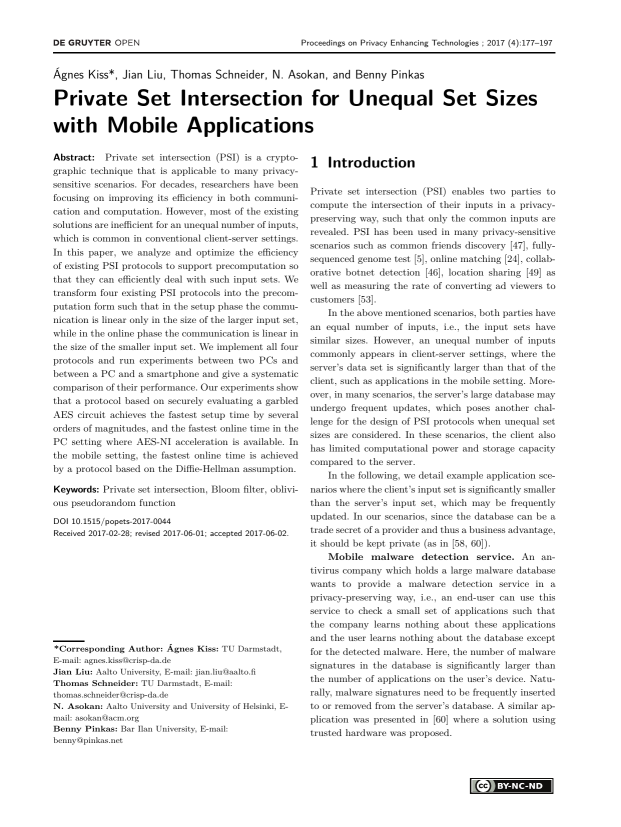Private Set Intersection for Unequal Set Sizes with Mobile Applications
Authors: Ágnes Kiss (TU Darmstadt), Jian Liu (Aalto University), Thomas Schneider (TU Darmstadt), N. Asokan (Aalto University and University of Helsinki), Benny Pinkas (Bar Ilan University)
Volume: 2017
Issue: 4
Pages: 177–197
DOI: https://doi.org/10.1515/popets-2017-0044
Abstract: Private set intersection (PSI) is a cryptographic technique that is applicable to many privacysensitive scenarios. For decades, researchers have been focusing on improving its efficiency in both communication and computation. However, most of the existing solutions are inefficient for an unequal number of inputs, which is common in conventional client-server settings. In this paper, we analyze and optimize the efficiency of existing PSI protocols to support precomputation so that they can efficiently deal with such input sets. We transform four existing PSI protocols into the precomputation form such that in the setup phase the communication is linear only in the size of the larger input set, while in the online phase the communication is linear in the size of the smaller input set. We implement all four protocols and run experiments between two PCs and between a PC and a smartphone and give a systematic comparison of their performance. Our experiments show that a protocol based on securely evaluating a garbled AES circuit achieves the fastest setup time by several orders of magnitudes, and the fastest online time in the PC setting where AES-NI acceleration is available. In the mobile setting, the fastest online time is achieved by a protocol based on the Diffie-Hellman assumption.
Keywords: Private set intersection, Bloom filter, oblivious pseudorandom function
Copyright in PoPETs articles are held by their authors. This article is published under a Creative Commons Attribution-NonCommercial-NoDerivs 3.0 license.

